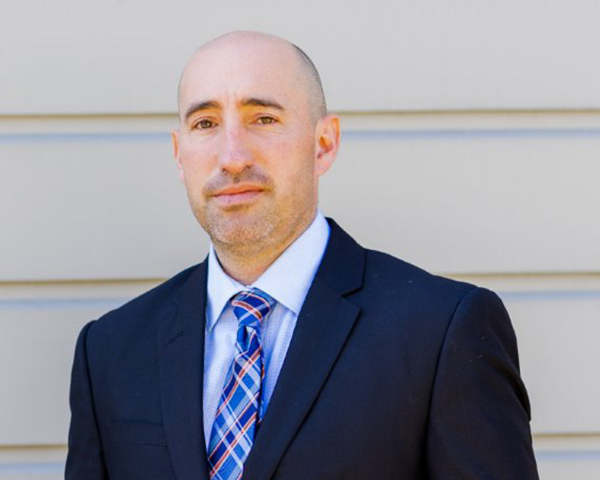Juvenile Offenses
Juvenile offenses are being cracked down on by state officials and local police enforcement officers alike. In fact, in 2009 alone more than 200,000 juvenile arrests were made in the state of California, As a result, more than 18,000 adolescents and children under the age of 18 were sentenced to time in a secure facility; some were even detained by the California Youth Authority. The repercussions associated with a juvenile offense can be potentially long lasting. Not only will a minor be faced with immediate penalties, they may acquire permanent marks on their criminal records and be forced to contend with the difficulty of finding a job and reasonable living conditions with a criminal record in their past.
State initiatives have been accumulating in recent years, many specifically targeting tougher enforcement and punishment for juveniles that have been accused of criminal behaviors in California. In 2009, a reported 1,115 minors were criminally tried in the state's adult court system - a significantly tougher system than that of the juvenile criminal system. The best way to try to protect your child from both short and long term consequences in the juvenile system is to secure defense counsel at the earliest possible time. As a matter of practice, our office makes attempts to contact both the juvenile probation department and District Attorney to try to work out a pretrial diversion where allowed by law.
JUVENILE COURTS VS. ADULT COURTS
When an adult is accused of committing a crime they will very often be taken to court and tried under the law. The same is sometimes true for minors under the age of 18. The difference, however, is the court system in which the two sets of age groups are criminally tried. Typically, the adult court system is reserved for persons over the age of 18. In rare circumstances, the severity of a juvenile offense could either be filed in adult court or petitioned by the prosecutor to have the case handled in adult court. A major difference and disadvantage in juvenile court is that you do not have the right to a jury trial where 12 jurors would have to unanimously agree on your guilt; you only have the right to a court trial before a judge
Most often, minors that have allegedly committed a crime are sent to the juvenile court system where they are tried accordingly. Juvenile court operates under the stipulations of the California Welfare & Institutions Code Section 602 which declares that the delegated court system will be given jurisdiction over the offenses of minors that have reportedly committed a criminal offense to some degree. Generally, the juvenile court system focuses more on rehabilitation than punishment of the minors that end up in court. Rather than being sentenced with penalties such as jail time and fines, juveniles tried in the system are typically sentenced to rehabilitation programs to put them "back on track."
JUVENILE DELINQUENCY
Juvenile delinquency is the legal wording used to describe a person under the age of 18 that has been connected with criminal behavior of some type. Generally, juvenile delinquents are adolescents and older children that have had some sort of run-in with the law, perhaps being accused of shoplifting, consuming alcohol, DUI, drunk in public, assault etc.... Estimates speculate that between 60% and 80% of all pre-adolescents and adolescents in the U.S. are connected with some form of criminally offensive behavior for their age. As such, juvenile delinquency is a persistent issue that police officers and legal officials have taken notice of and are now working towards alleviating. Unfortunately, not always are their efforts effective in producing ideal results.
Many cases of juvenile delinquency that are brought before the courts are relatively minor in nature - some are even simple instances of bad luck. The problem, however, is that the court system may still feel compelled to take legal action. Some juveniles are sent to rehabilitative programs for one-time offenses that should really have been categorized as no more than a mistake or poor judgment. Now, the average age for first-time arrests is lower than ever, meaning that younger and younger children are being criminally accused and tried accordingly. Some of these crimes are only criminal in nature because of the age at which they are committed. Smoking, for example, is nothing more than a status offense, as it is only illegal up to a certain age, at which point its legal ramifications become completely nonexistent.
Whether a child has been accused of a serious criminal offense or a status offense, the criminal allegation itself is enough to warrant the need for a strong legal defense. Matters of this nature deserve to be tackled by an attorney skillful enough to take on adult offenses in state and federal courts, as criminal offenses – even juvenile ones – can escalate quickly and easily become more than they started as. We recommend that you take action today by calling our office to speak with an experienced criminal defense attorney about the legalities of your charges and the methods of strategy that can be used in your defense.

The client experience
Read What Past Clients Have to Say-
“I don’t really know how we were so very lucky to find this man but he is a true professional and we could not be happier with the outcome.”
- Former Client -
“Took a lot of stress of my shoulders and made the sentence better than what i thought it would be.”
- Nick A. -
“I was in trouble... he handled the case professionally and is a very kind, personable, and intelligent person to have in your corner!”
- Weston T.
Why Clients Trust Attorney Benjamin Okin
-
Exclusively Defending
Criminal Cases -
Experienced Trial Lawyer
-
Former Prosecutor
-
Stellar Reputation In the
Legal Community

Attorney Benjamin Okin goes above and beyond for each client, ensuring the best possible outcome for each case. Learn more about Attorney Okin's background.


